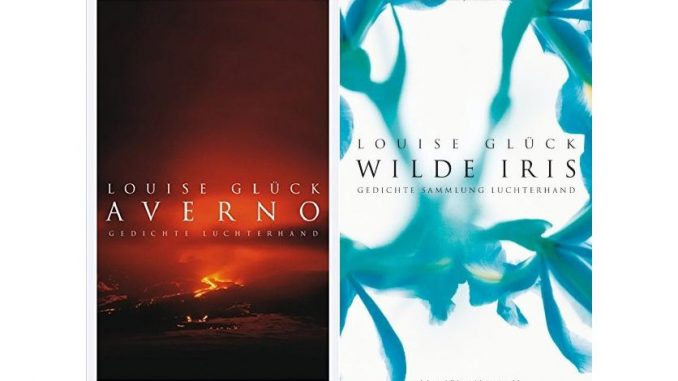

Glück is the recipient of the National Book Critics Circle Award ( Triumph of Achilles), the Academy of American Poet's Prize ( Firstborn), as well as the Massachusetts Institute of Technology Anniversary Medal (2000), and fellowships from the Guggenheim, Rockefeller foundations and the National Endowment for the Arts. Her other honors include the Lannan Literary Award for Poetry, the Sara Teasdale Memorial Prize (Wellesley, 1986), the Pulitzer Prize for Poetry in 1993 for her collection, The Wild Iris.

In 2001, Yale University awarded Louise Glück its Bollingen Prize in Poetry, given biennially for a poet's lifetime achievement in his or her art. She also published a collection of essays, Proofs and Theories: Essays on Poetry (1994), which won the PEN/Martha Albrand Award for First Nonfiction. She is the author of twelve books of poetry, including: A Village Life (2009) Averno (2006), which was a finalist for The National Book Award The Seven Ages (2001) Vita Nova (1999), which was awarded The New Yorker's Book Award in Poetry Meadowlands (1996) The Wild Iris (1992), which received the Pulitzer Prize and the William Carlos Williams Award of the Poetry Society of America Ararat (1990), which received the Rebekah Johnson Bobbitt National Prize for Poetry from the Library of Congress. She attended Sarah Lawrence College and later Columbia University. Parents of Hungarian Jewish heritage reared her on Long Island. Despite their obvious darkness, the poems in Averno shine a light on some of the most enduring thoughts and questions of our existence in a manner that does not fail, in my view, to be both thought-provoking and captivating.American poet Louise Elisabeth Glück served as poet laureate of the United States from 2003 to 2004. Whilst death is a recurring theme, we are also left wondering about life- its purpose, its beauty, and the things that help to propel us through it. Philosophical and yet full of feeling, these poems have haunted me, in the best possible sense of the word, for the last decade.

Never afraid to pose the 'big' questions, the beauty of this collection lies, for me, in the way each poem denies us a neat resolution, instead encouraging us to reflect on the nature of death and the afterlife in an entirely human way. Throughout this poetry collection, Louise Glück blends classic mythology with eternal musings, taking us to the depths of the underworld and back, in poems which explore the afterlife, love, isolation, oblivion, and the soul. Reader Leader Kate recommends Louise Glück's collection Averno.Ī small crater lake in southern Italy, Averno was regarded by the Romans as the entrance to the ancient underworld. We're delving back into poetry for this week's Read.


 0 kommentar(er)
0 kommentar(er)
